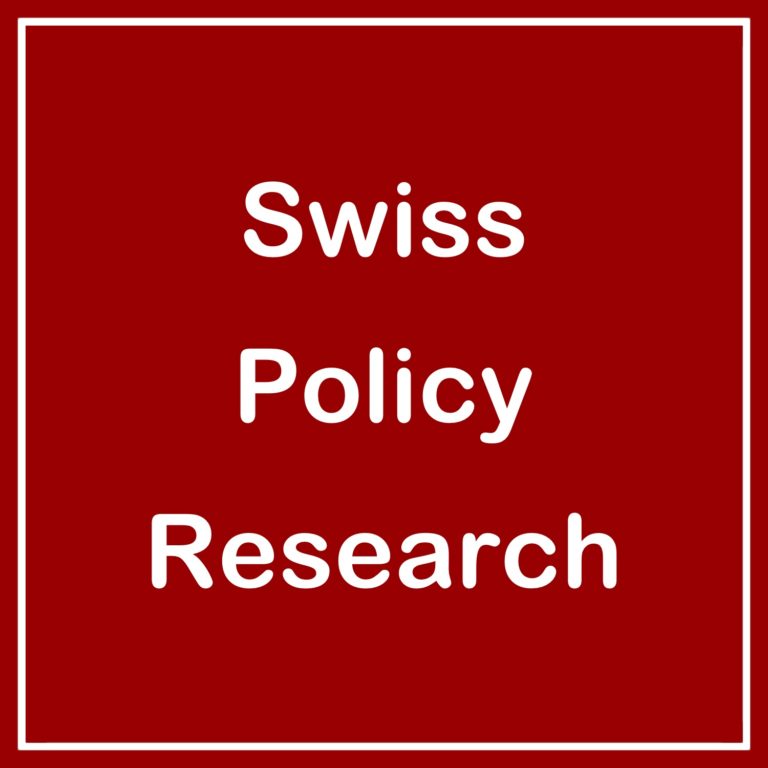No American has to die on COVID-19, a US primary care doctor from Houston, Texas claims. Her treatment plan is supported by ongoing Swiss studies and published by the Swiss Policy Research . The success can be documented in the low rate of fatalities in Germany.
On April 20 eTurboNews reported about the concern by Swiss Professor Vogt, a Cardiac and thoracic Vascular Surgery Specialist who tried to demonstrate the failures in looking at the virus.
Germany has done well with COVID-19 compared to many other countries in the region, but what is surprising is the relatively low death rate. The USA has 5 times as many people dead, Belgium almost 8 times, and the UK 7 times. The US State New York had 16 times as many people dead based on a percentage of the population. This comparison is per-centage based on 1 million population, so it can be compared.
Why is the death rate in Germany so low compared to others? eTurboNews talked to a medical professional in Germany involved in the treatment of Coronavirus. He or she did not want to be named but said there is a reason for it. Kept as an internal secret the treatment protocol in the Federal Republic of Germany looks very different from other regions.
211,060 infections, 395 new cases today, 9226 dead, including two more today. This is the COVID-19 situation in Germany.2,518 Germans out of 1 million had the virus, and 110 out of a million died.
These are sad numbers, but compared with neighboring Belgium, 849 people out of a million died with 5,930 infected. The UK counts for 680 fatalities out of a million with 4,475 infected out of a million.
The United States currently counts per million for 14,344 cases with 475 dead.
Germany’s unpublished treatment protocol was also followed by Dr. Stella, a primary care physician in Houston, Texas who went to school in Nigeria. She claimed in public that “No American has to die” She added: “There is a cure for COVID-19.” eTurboNews has seen the video with her statement. It was removed by Facebook and YouTube for “spreading information that is against WHO guidelines.”
Immunological and serological studies show that most people develop no symptoms or only mild symptoms when infected with the new coronavirus, while some people may experience a more pronounced or critical course of the disease.
Based on the available scientific evidence and current clinical experience, the SPR Collaboration recommends that physicians and authorities consider the following Covid-19 treatment protocol for the early treatment of people at high risk or high exposure (see references below).
Based on this and very similar protocols, US physicians reported an 84% decrease in hospitalization rates, a 50% decrease in mortality rates among already hospitalized patients (if treated early), and an improvement in the condition of patients often within hours.
This information had been published in the Swiss Policy Research. It’s important that patients are instructed to consult a doctor before implementing any such protocol.
Treatment protocol
- Zinc (75mg to 100mg per day)
- Hydroxychloroquine (400mg per day)
- Quercetin (500mg to 1000mg per day)
- Azithromycin (up to 500mg per day)
- Heparin (usual dosage)
The primary component is zinc, which inhibits RNA polymerase activity of coronaviruses and thus blocks virus replication (see references below). Hydroxychloroquine and quercetin support the cellular absorption of zinc. Azithromycin prevents bacterial superinfections. Heparin prevents infection-related thromboses and embolisms in patients at risk.
Note: Quercetin may be used in addition to or as a replacement of HCQ. Contraindications for HCQ (e.g. favism or heart problems) and azithromycin must be observed.
Additional notes
The early treatment of patients as soon as the first typical symptoms appear and even without a PCR test is essential to prevent progression of the disease. Zinc, HCQ and quercetin may also be used prophylactically for people at high risk or high exposure (e.g. for health care workers).
In contrast, isolating infected high-risk patients at home and without early treatment until they develop serious respiratory problems, as often happened during lockdowns, may be detrimental.
The alleged or actual negative results with hydroxychloroquine in some studies were based on delayed use (intensive care patients), excessive doses (up to 2400mg per day), manipulated data sets (the Surgisphere scandal), or ignored contraindications (e.g., favism or heart disease).
Early treatment based on the above protocol is intended to avoid hospitalization. If hospitalization nevertheless becomes necessary, experienced ICU doctors recommend avoiding invasive ventilation (intubation) whenever possible and using oxygen therapy (HFNC) instead.
It is conceivable that the above treatment protocol, which is simple, safe and inexpensive, could render more complex medications, vaccinations, and other measures largely obsolete.
Background
The fact that HCQ is effective against infections with SARS coronaviruses was already established in 2005 in the course of the SARS-1 epidemic. That zinc blocks the RNA replication of coronaviruses was discovered in 2010 by Ralph Baric, one of the world’s leading SARS virologists. That HCQ supports the cellular uptake of zinc was discovered in 2014 in the context of cancer research. That the flavonoid quercetin also supports the cellular uptake of zinc was also discovered in 2014.
References
General
- EVMS Critical Care Covid-19 Management Protocol (Paul Marik, MD, June 2020)
Zinc
- Study: Effect of Zinc Salts on Respiratory Syncytial Virus Replication (Suara & Crowe, AAC, 2004)
- Study: Zinc Inhibits Coronavirus and Arterivirus RNA Polymerase Activity In Vitro and Zinc Ionophores Block the Replication of These Viruses in Cell Culture (Velthuis et al, PLOS Path, 2010)
- Study: Zinc for the common cold (Cochrane Systematic Review, 2013)
- Study: Hydroxychloroquine and azithromycin plus zinc vs hydroxychloroquine and azithromycin alone: outcomes in hospitalized COVID-19 patients (Carlucci et al., MedRxiv, May 2020)
- Review: Does zinc supplementation enhance the clinical efficacy of chloroquine/ hydroxychloroquine to win today’s battle against COVID-19? (Derwand & Scholz, MH, 2020)
- Review: Zinc supplementation to improve treatment outcomes among children diagnosed with respiratory infections (WHO, Technical Report, 2011)
- Article: Can Zinc Lozenges Help with Coronavirus Infections? (McGill University, March 2020)
Hydroxychloroquine
- Studies: Overview of more than 50 international HCQ studies (C19Study.com)
- Study: Chloroquine is a potent inhibitor of SARS coronavirus infection and spread (Vincent et al., Virology Journal, 2005)
- Study: Chloroquine Is a Zinc Ionophore (Xue et al, PLOS One, 2014)
- Study: Physicians work out treatment guidelines for coronavirus (Korean Biomedical Review, February 2020)
- Study: Expert consensus on chloroquine phosphate for the treatment of novel coronavirus pneumonia (Guangdong Health Commission, February 2020)
- Study: Clinical Efficacy of Chloroquine derivatives in COVID-19 Infection: Comparative meta-analysis between the Big data and the real world (Million et al, NMNI, June 2020)
- Study: Treatment with Hydroxychloroquine, Azithromycin, and Combination in Patients Hospitalized with COVID-19 (Arshad et al, Int. Journal of Infect. Diseases, July 2020)
- Study: COVID-19 Outpatients – Early Risk-Stratified Treatment with Zinc Plus Low Dose Hydroxychloroquine and Azithromycin (Scholz et al., Preprints, July 2020)
- Protocol: Advisory on the use of HCQ as prophylaxis for SARS-CoV-2 infection (Indian Council of Medical Research, March 2020)
- Review: White Paper on Hydroxychloroquine (Dr. Simone Gold, AFD, July 2020)
- Article: The Key to Defeating COVID-19 Already Exists. We Need to Start Using It. (Professor Harvey A. Risch, Newsweek, July 2020)
- Article: Using Hydroxychloroquine and Other Drugs to Fight Pandemic (Yale School of Medicine)
- Article: Moroccan Scientist: Morocco’s Chloroquine Success Reveals European Failures (Morocco World News, June 2020) Zemmouri believes 78% of Europe’s coronavirus-related deaths could have been avoided if European states had mirrored Morocco’s chloroquine strategy.
- Article (IT): Covid: none of my patients are dead, and only 5% had to be hospitalized (Italia Oggi, June 2020) Dr. Cavanna treated the affected by the virus by intervening promptly and at home.
Quercetin
- Study: Small molecules blocking the entry of severe acute respiratory syndrome coronavirus into host cells (Ling Yi et al., Journal of Virology, 2004)
- Study: Zinc Ionophore Activity of Quercetin and Epigallocatechin-gallate: From Hepa 1-6 Cells to a Liposome Model (Dabbagh et al., JAFC, 2014)
- Study: Quercetin as an Antiviral Agent Inhibits Influenza A Virus Entry (Wu et al, Viruses, 2016)
- Study: Quercetin and Vitamin C: An Experimental, Synergistic Therapy for the Prevention and Treatment of SARS-CoV-2 Related Disease (Biancatelli et al, Front. in Immun., June 2020)
- Report: EVMS Critical Care Covid-19 Management Protocol (Paul Marik, MD, June 2020)
Heparin
- Commentary: The versatile heparin in COVID‐19 (Thachil, JTH, April 2020)
- Study: Anticoagulant Treatment Is Associated With Decreased Mortality in Severe Coronavirus Disease 2019 Patients With Coagulopathy (Tang et al, JTH, May 2020)
- Study: Autopsy Findings and Venous Thromboembolism in Patients With COVID-19 (Wichmann et al., Annals of Internal Medicine, May 2020)
- Article: Anticoagulation Guidance Emerging for Severe COVID-19 (Medpage Today)







